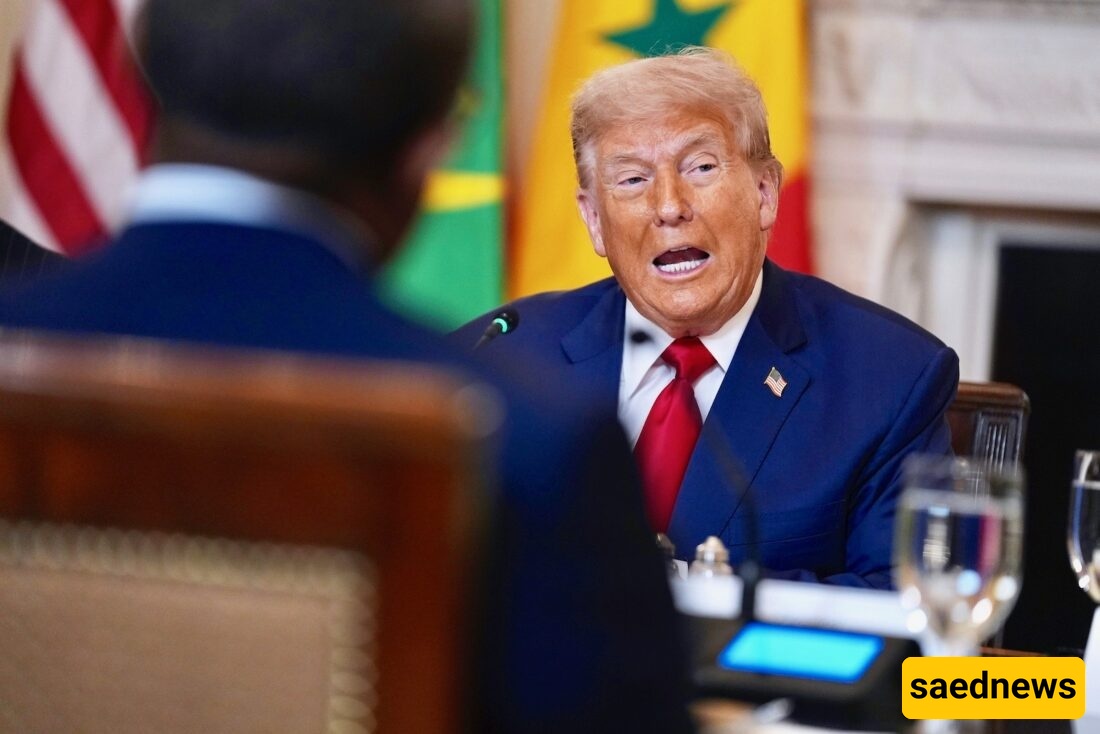SAEDNEWS: In a controversial move, Donald Trump has announced new tariffs on key imports from Brazil—a decision that has drawn sharp criticism from economic analysts, one of whom warned, “In this game, both sides will suffer losses.”

According to SaedNews citing France 24, amid ongoing global trade tensions, Donald Trump has once again entered the fray—this time targeting the economy of one of the United States’ key trading partners in the Southern Hemisphere: Brazil. The former U.S. president, campaigning on a platform to bring jobs back to America ahead of upcoming elections, has unveiled new tariffs on Brazilian imports including steel, aluminum, and certain agricultural products.
The response was swift and significant. Economic analysts have warned that this decision will not only fail to improve the state of domestic U.S. industries but will also provoke retaliatory measures from Brazil, ultimately resulting in “losses for both countries.”
A senior international trade analyst told the media:
“Tariffs are a short-term punitive tool, but their long-term effects can be devastating. In this particular case, not only will global supply chains be disrupted, but American companies dependent on cheap imports from Brazil will also suffer losses.”
Brazil, the largest exporter of key products such as steel and oilseeds to the United States, promptly reacted to the announcement. The Brazilian Foreign Ministry stated it is “examining options for reciprocal responses.” Trade officials in Brazil warned that if tariffs are imposed, the country’s exports to the U.S. could decline by billions of dollars—an outcome that would cast a shadow over Brazil’s economic growth for the current year.
Meanwhile, the U.S. automotive, construction, and agricultural industries—which source part of their raw materials from Brazil—may face higher production costs. In fact, Trump’s decision, while framed as support for domestic manufacturing, could ultimately lead to increased expenses for American consumers.
Some political analysts argue that this move is not purely economic but also part of Trump’s strategy to project strength in foreign policy—particularly against countries he claims do not “play fair” in economic competition with the U.S. However, these analysts warn that turning strategic partners into potential rivals could weaken America’s geopolitical standing in the long term.
On the other hand, international relations experts point out that Brazil has sought a more active role in institutions like the BRICS group in recent years, and economic confrontation with the U.S. might push Brazil closer to alternative alliances, such as China and Russia.
Ultimately, what is clear is that trade tariffs—whether framed as economic patriotism or as tools of pressure—are unlikely to produce any outcome other than market disruption and increased political distrust if ripple effects and opposing reactions are not carefully considered.
Trump’s trade policy is once again set on a confrontational course, but this time experts warn that this path is less a decisive victory and more a lose-lose game—for both Washington and Brasília.

